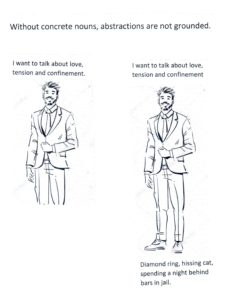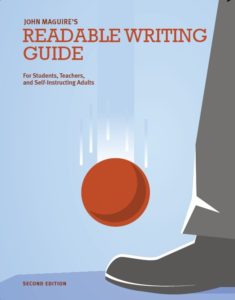When learning a skill, you start awkwardly and then become smoother and the skill eventually becomes second nature. It can go faster than you think it will. As Robert Fritz explains his terrific The Path of Least Resistance, pushing yourself when you practice pays off. This excerpt below taught to me to act quickly in the classroom, not to dawdle, and to move students into more difficult exercises despite their mild discomfort. (This only make sense if the course is laid out in a sequence from easy to hard.) Here’s the charming Robert Fritz anecdote that changed the way I taught.
When I first attended the Boston Conservatory of Music, the clarinetist Attilio Poto was one of my teachers. The first lesson he assigned me was a bit more difficult than I was technically ready for. After a week of diligent practice I still couldn’t play it well. When I went for my second lesson, I expected Mr. Poto would have me spend at least another week practicing the same exercise. Instead, he assigned the next exercise in the book, which was even more difficult than the one with which I had struggled for the past week.
I spent the week attempting to play the new exercise, and when the time came for my lesson, I could not play it very well. I suggested to Mr. Poto that it was time to perfect my technique by focusing on that exercise for another week. Mr. Poto only smiled as he turned the page to the next, and more difficult, exercise in the book.
For three more weeks I was assigned progressively more difficult exercises to play, each of which I was unable to play well after a week of practice.
At the sixth lesson Mr. Poto turned back to the first exercise he had assigned me—my exercise for the first week—and asked me to play it. Although I had not even looked at that exercise for the past five weeks, I was able to play it well. He then turned to the second week’s exercise and, again, I was able to play it well.
Had I spent six weeks attempting to perfect those first two exercises, I would not have been able to play them as well as I did that day.
Mr. Poto knew something about assimilation I was only beginning to learn: One powerful way to assimilate your present step is to move on to your next step, even if you feel inadequately prepared for it. When you move to your next step, you are somehow able to incorporate more than you now know about your present step.
Robert Fritz, The Path of Least Resistance, p 202


